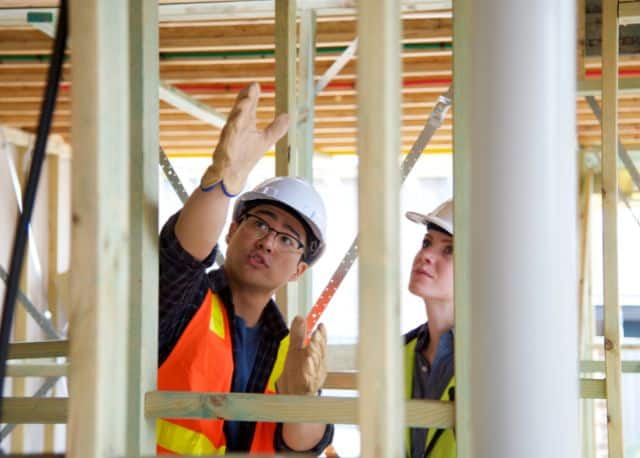If you’re an employer taking on an engineering apprentice, mentoring is a great way to help the apprentice get the most out of the programme and ensure your business also gets the best possible return from the apprenticeship and the benefits it brings to the organisation.
Ofsted and the Chartered Institute for IT (BCS), who both have input into apprenticeship learning standards on national level, also recommend that every apprentice have a dedicated mentor for the duration of the programme, whatever type of apprenticeship they are on.
A mentor is a member of staff at the business who is not the apprentice’s line manager or in their direct reporting hierarchy, but instead is an individual who can help guide them through the work-side of the programme. Key to this is developing the skills needed for the apprenticeship to be completed, enabling the apprentice to build a great foundation for their future career.
Why is it important that domestic gas engineering apprenticeships have mentors?
While it isn’t always the case that all apprentices are young people entering the workplace for the first time, many of them are, or are working for the first time in an industry.
Having a mentor is a great way to provide additional support to an apprentice and offer guidance throughout the apprenticeship and plays an important role in helping to motivate apprentices both at work and to press on with the training side of the programme.
Even if the apprentice is an existing employee, having a mentor can be beneficial and help them make the most of the opportunity.
The idea is discussions had between the mentor and the apprentice remain confidential so the apprentice feels they can always be honest, and having the support of the mentor helps give them a ‘voice’ within the business if needed at any point during the apprenticeship and builds their confidence in their own ability and skillset.
The skills needed for apprenticeship mentors
Some of the skills a good mentor has or can develop include:
- Being able to actively listen to the apprentice
- Building rapport
- Being able to understand what the apprentice wants from the programme and their career ambitions
- Being able to offer constructive feedback
- Being able to help the apprentice to set achievable targets
- Signposting if additional support or services are required
- Being a role model in the workplace for the apprentice
For domestic gas engineering apprenticeships, where safety is a big priority for practical work, it’s essential that the apprentice feels they can ask their mentor questions at any time, even if they could be what they think of as ‘silly questions’, and they won’t be laughed at or made to feel uncomfortable by doing so.
This relates not only to the practical aspects of the job role they are learning, but also in terms of finding out about the company, the culture and potential career options in the future.
Mentors need time set aside to be effective in the role
Employers ideally need to give mentors specific time aside from their usual role to mentor an apprentice to ensure they have adequate time to dedicate towards offering the support that’s needed. This is likely to be even more the case in the first few weeks and months of an apprenticeship.
Mentors will usually check in with apprentices daily at the start of the apprenticeship, along with having regular one-to-one sessions every couple of weeks. This can often be scaled back to monthly as the apprenticeship progresses, but the daily check-ins can often continue throughout, even if it’s just a couple of minutes to chat and make sure that everything is on track.
The mentor role for engineering apprenticeships
The apprentice’s mentor should have their responsibilities outlined to ensure they understand the role they play in developing the apprentice and the impact that being a mentor will have on their own development.
Usual responsibilities for a mentor working with an engineering apprentice will include:
- If the apprentice is a new employee – helping them to settle in and setting performance criteria for this first period of the apprenticeship, along with the employer
- Working with the training provider to identify on-the-job training opportunities and plan for what the apprentice should learn and what skills to develop at various points in the programme
- Providing day-to-day coaching and support to the apprentice, which might include getting other colleagues involved
- Holding regular one-to-one meetings with the apprentice to ensure their work schedule is realistic and meets the needs of the business as well as the apprentice, as well as to keep track of progress being made in off-the-job training carried out by the training provider
- Liaising with the training tutor(s) in relation to the apprentice’s progress
- Attending any meetings with or on behalf of the apprentice as required – this may include a final meeting between employer, apprentice and training provider to mark the completion of the apprenticeship
More apprenticeship mentoring tips
- Mentors are meant to be seen by the apprentice as a ‘trusted advisor’ and the mentoring process should never be used for disciplinary purposes
- A daily 5-10 minute catch-up between mentor and apprentice can be a great way to ensure the apprentice understands the requirements for the day and has a chance to ask any questions if needed
- Mentoring is primarily a listening exercise, followed by supportive action, so mentors should ensure one-to-ones have space for the apprentice to discuss anything they feel is important, as well as the planned agenda
Apprenticeship mentoring is a two-way relationship
While apprentices certainly benefit from having a mentor, it can also be a very rewarding process for the mentor too and can help build more people within the business who have leadership experience, enjoy mentoring and, through doing it, gain other skills which are useful to them and the employer’s organisation, both now and in the future.
We provide support to businesses in employing apprentices and can offer specialist assistance if you want to know more about apprenticeship mentors or the role of a mentor for domestic gas engineering apprenticeships.
Our experience in this industry makes us ideally placed to help.


